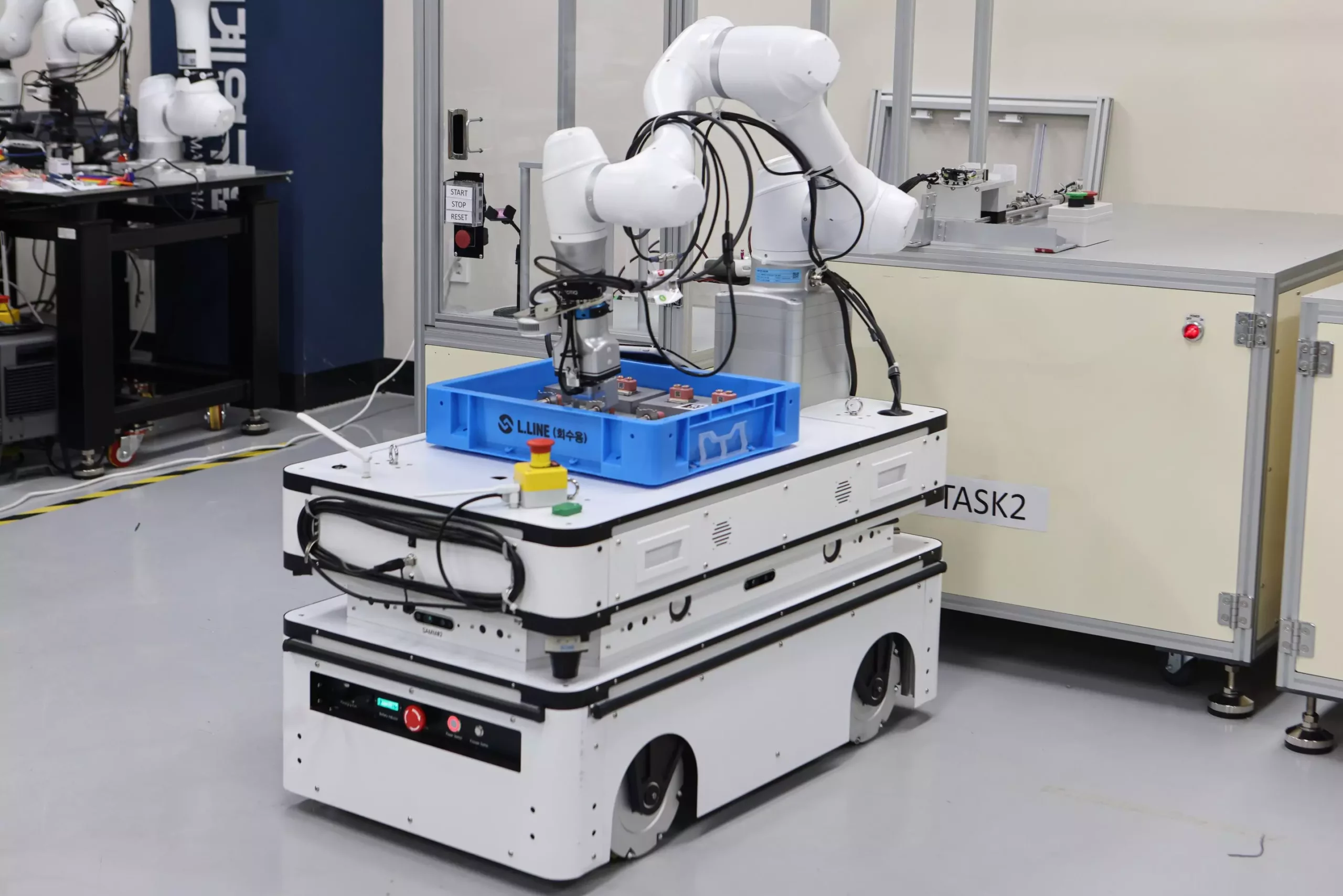In a groundbreaking development, a team of researchers led by Chang-hyun Kim from the Korea Institute of Machinery and Materials (KIMM) has successfully developed an AI technology for robot work that can be easily applied to manufacturing processes. This pioneering technology is set to revolutionize the manufacturing industry by enabling the seamless integration of robots into various processes, including the manufacturing of automobiles, machine parts, assembly, and production. With its potential to improve working conditions and enhance efficiency, this innovation is highly anticipated to shape the future of manufacturing.
At the core of this AI technology for robot work lies the “Large Language Model (LLM)” and virtual environment. The researchers have designed a system that comprehends user commands and generates and executes corresponding tasks for the robots. By leveraging voice or text inputs, task sequences and movements can be automatically generated, streamlining the workflow. Additionally, pre-learning in a virtual space enables the selection of the optimal work point for each specific site, minimizing the need for on-site modifications. Furthermore, this technology aids in the detection of objects and collision avoidance, further enhancing the safety and efficiency of robot work.
Traditionally, when employing robots for manufacturing tasks, the work environment and objects have to be adapted to suit the robot, imposing limitations on the range of tasks that can be performed. This restriction has hindered the full potential of robots in the manufacturing industry. Furthermore, the development of integrated technologies for tasks, such as movement and recognition, has been sluggish, impeding progress in this field. However, with the emergence of AI technologies like LLM, the integration of robots into various tasks has become achievable. Yet, the real challenge has been translating these capabilities from the laboratory environment to actual manufacturing sites.
The newly developed AI technology for robot work offers a breakthrough solution by enabling precise specification of tasks for robots. Combined with pre-learning in a virtual space, this technology empowers robots to perform tasks with minimal on-site modifications. This innovation allows manufacturers to leverage robots effectively and adapt to various situations that may arise in the manufacturing process.
A Promising Future: Effective Response to Manufacturing Challenges
As on-site demonstration tests are presently underway, the potential impact of this newly developed technology on manufacturing sites is considerable. By implementing AI technology for robot work, manufacturers can respond efficiently to dynamic challenges, achieving higher productivity and optimizing working conditions. This transformative technology holds the promise of unlocking new levels of flexibility and adaptability in manufacturing processes, further advancing the industry.
The development of AI technology for robot work in manufacturing marks a significant milestone in the evolution of the industry. By combining the power of Large Language Models and virtual environments, robots can seamlessly integrate into manufacturing processes, bringing about increased efficiency and improved working conditions. As this technology continues to be tested and implemented on actual manufacturing sites, we can expect a paradigm shift in the way robots are utilized, paving the way for a more automated and optimized future in manufacturing.


Leave a Reply